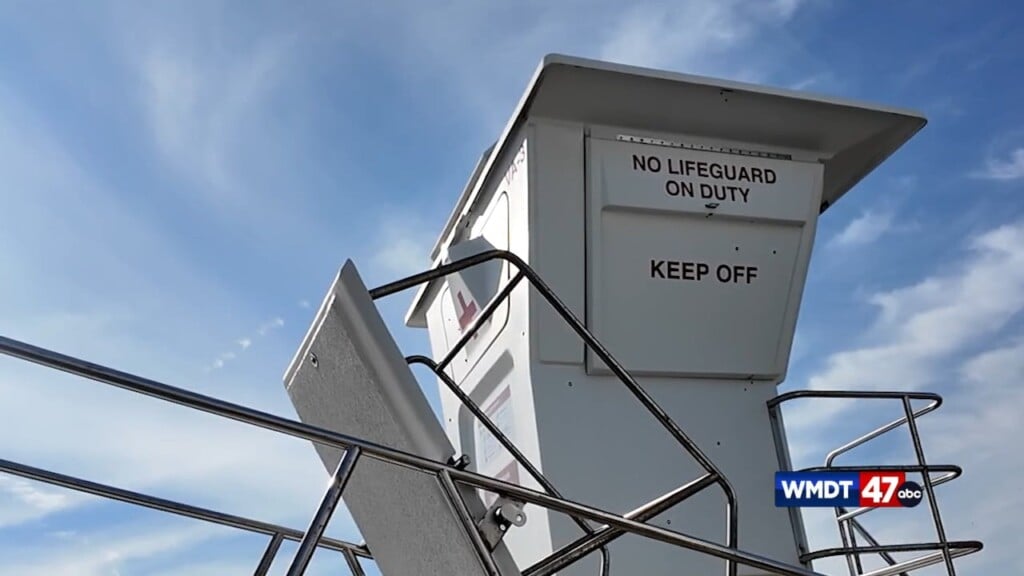Privacy king or plant killer? Wicomico Co. leaders discuss solutions for invasive bamboo
WICOMICO COUNTY, Md. – Bamboo may be a powerful privacy screen, but it’s actually a highly invasive species.
Fighting Ferocious Growth
It’s no different in Wicomico County, where leaders are working to find solutions the plant’s rapid spread. Tuesday, Wicomico County Council heard from representatives of the Natural Resources Conservation Advisory Committee on that topic.
Dr. Judith Stribling, Chair of the committee, says the group has been working to fight against invasive species of plants for several years.
The committee has helped cut back on Japanese knotweed at Leonard’s Mill Pond, as well as wisteria at Pemberton Park. Now, their focus is on the stuff that pandas eat.
Wicomico Won’t Be Bamboo-zled
In 2023, the Maryland General Assembly passed legislation to allow local governments to adopt regulations on how to tackle bamboo.
“We’re trying to just spread awareness, and look at some measures on bamboo that are reasonable, and not burdensome to the citizens,” Dr. Stribling said.
While that legislation provides a sort of template for any local ordinances, Dr. Stribling calls it a bit Draconian; it suggests a maximum fine of $3,000.
Dr. Stribling says there are better potential solutions for Wicomico County.
“What we do feel strongly needs to be adopted, is some measure to restrict the sale and planting of the species, because it is such a threat,” Dr. Stribling said. “If people don’t see it for sale, then they’ll choose another plant. There are some wonderful privacy screens that are native species, and they provide habitat instead of eliminating habitat for important animals and plants.”
Another potential solution: incentivizing the removal of bamboo in Wicomico County, like how it does for those who eradicate invasive gyspy moths.
Super Spreader
As Dr. Stribling explains it, part of the reason that bamboo is such a threat because it’s greedy. Don’t blame the plant itself, however; Dr. Stribling says it’s easy to thrive when you put the competition to shame.
“When a species comes to an area where it’s not native, it typically has no predators, or herbivores in this case. We don’t have pandas wandering around to eat the bamboo,” Dr. Stribling said. “It kills the trees that it grows up around fairly quickly, and it restricts any other plants from growing because it is so thick and dense. It hogs all the nutrients, light, and water.”
And, bamboo spreads fast. The plant doesn’t propagate with seeds, like many others, but its cuttings can produce strong, and rapidly-growing offspring. Once bamboo is in the ground, it’s notoriously hard to get rid of.
“You are kind of stuck with it. It can be taken out, but it takes a lot of work, and just simple spraying of herbicide isn’t enough,” Dr. Stribling said. “It won’t just show up in your yard, but if it’s next door, it will show up.”
Looking Ahead
Looking ahead, Dr. Stribling says bamboo can’t continue to grow unchecked in Wicomico County.
“We recognize that that is an enormous threat to our forestry industry, and also to the natural forests’ existence,” Dr. Stribling said.
However, Dr. Stribling added, finding a solution that fits Wicomico County, will be key in ensuring a successful battle against bamboo.
“There are citizens who are very upset about bamboo on their neighbors’ property, and we recognize that,” Dr. Stribling said. “We would like to address that, if possible, with this legislation, but I think it would be a mistake to lower the boom on citizens and take them to court to keep their bamboo.”
While no official action has been taken by Council on what to do about the bamboo, Dr. Stribling urges homeowners and gardeners to skip the plant for a native one.


